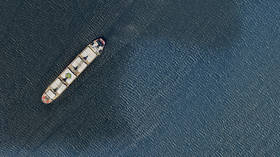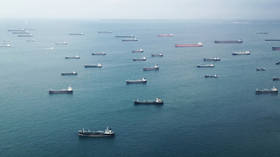EU reveals exemptions for sanctioned Russian oil products

The European Union has issued exceptions to its embargo on Russian petroleum products which came into force on February 5.
According to guidance published on the website of the European Commission on Tuesday, if a Russian petroleum product is processed by being blended in a third country with a product from another country, it will no longer be considered of Russian origin and the price cap will not apply.
“The price cap will no longer apply after the crude oil or petroleum products have been released for free circulation in a jurisdiction outside Russia and are consigned to the landed purchaser,” the report stated.
The exemption will allow EU countries to continue buying Russian petroleum products such as diesel from third countries since Moscow has prohibited any sales under the price cap scheme.
The EU’s ban on Russian refined petroleum products came into force on February 5, setting a price limit of $100 per barrel for diesel, jet fuel, and gasoline coming from Russia, and a $45-per-barrel cap for other oil products that trade below the crude price, such as fuel oil used in industry.
The price caps, together with an EU ban on Russian oil product imports, are part of a broader agreement among the G7 countries. It follows a $60-per-barrel cap on Russian crude that the G7 along with the EU and Australia imposed on December 5.
The measures prohibit Western companies from financing, insuring, trading, brokering or carrying cargoes of Russian crude and oil products unless they were bought at or below the set price caps.
Moscow has opposed any attempts to cap prices on its energy exports. The Russian government has banned crude sales to buyers that mention the price ceiling in their contracts, and a similar restriction is expected to be introduced regarding the EU’s latest cap on oil products.
For more stories on economy & finance visit RT's business section













